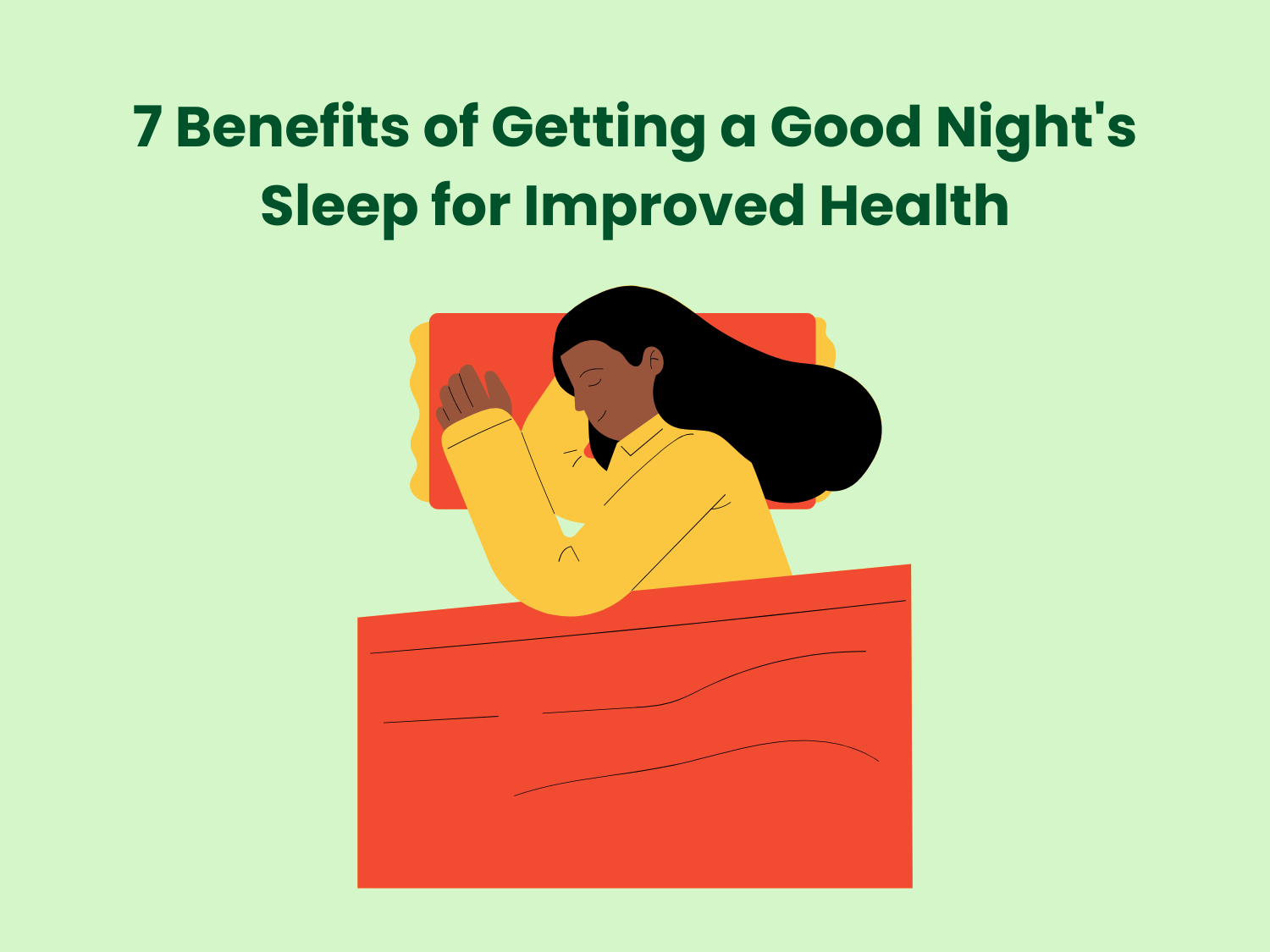We all know that a good night’s sleep is important. But in our busy modern lives, it’s common to sacrifice sleep for work, screens, socializing, or other priorities. Chronic lack of sleep catches up eventually, impacting both physical and mental health. Adequate quality sleep has incredible benefits in optimizing health, concentration, appearance, and daily performance.
In this article, we will explore the specific positive impacts of getting a good night’s sleep and how it might change your energy levels, productivity, mood, and overall well-being. Learn how sufficient rest charges you for the day ahead.
#1. Boosts Immunity
Sleep deprivation weakens your immune system’s defenses against viruses and bacteria. During deep sleep, your body produces and distributes key immune cells and proteins like antibodies and cytokines. Without enough sleep, you produce fewer of these protective immune substances.
Adequate sleep strengthens immune functioning to help fight infections and illnesses. Those consistently not sleeping 7-9 hours have substantially higher risks of frequent colds, flu, pneumonia, and other ailments. Quality sleep keeps your body’s defenses on guard to ward off disease.
#2. Improves Concentration and Productivity
Insufficient sleep impairs focus, attention, and cognitive abilities. Being sleep-deprived drastically slows response times and decision-making capabilities. Focus and concentration diminish. Memory and learning decrease without proper REM sleep. Mental performance suffers greatly without adequate rest.
Getting sufficient quality sleep prevents this decline in brain function. You are sharper, more focused, clear-headed, and productive when well rested compared to sleep deprived. Work performance, concentration and mental stamina clearly benefit from sound sleep.
#3. Enhances Mood and Emotional Health
Fragmented or short sleep often leads to increased irritability and emotional volatility. Sleep deprivation amplifies sensitivity to negative emotions like anger, depression, and anxiety. Without restorative rest, your brain struggles to regulate mood and emotional responses. Emotional control and optimism require quality sleep.
Getting adequate sleep duration and efficiency minimizes mood variability. You avoid the emotional reactivity and irritability caused by disrupted sleep, arising each morning calmer, happier, and grounded. The mental reset enabled by deep sleep improves emotional health and positivity.
#4. Boosts Exercise Performance
Sleep is essential for muscle repair, tissue growth, and protein synthesis, which enable athletic gains. Human growth hormone is predominantly secreted during slow-wave sleep, stimulating muscle growth. Lack of sleep impairs glucose metabolism needed to fuel physical exertion. Insufficient sleep also disrupts motor skills and coordination required for athletic performance through its effects on the brain.
Those who get good sleep have better exercise performance, including muscle strength, endurance, motor control, and quicker recovery. Quality sleep also avoids overtraining injuries and burnout. Resting well at night boosts the next day’s exercise performance.
#5. Aids Weight Management
Inadequate sleep dysregulates hormones that control hunger and appetite, like leptin and ghrelin, causing increased cravings for carbohydrates and fatty foods. It also diminishes impulse control, contributing to poor diet. Sleep loss slows metabolism, making burning calories and losing weight more difficult.
Optimal sleep efficiently regulates appetite and metabolism, allowing better diet, calorie control, and weight management. Well-rested people have an easier time maintaining healthy body composition and BMI through balanced nutrition and metabolism.
#6. Reduces Inflammation
Sleep loss activates your body’s inflammatory and stress responses, creating systematic inflammation that damages body tissues if sustained chronically. Ongoing inflammation is linked to heart disease, arthritis, stroke, diabetes, cancer, and other serious illnesses. Poor sleeping habits harm long-term health by spurring inflammation.
Adequate sleep duration reduces inflammation to normal levels, avoiding disease-causing chronic inflammation. Deep sleep allows your body to reset its inflammation response for better overall physical well-being and protection against inflammatory conditions.
#7. Improves Skin Health
Collagen production, cell turnover, barrier repair, hydration, and skin healing predominantly occur at night during sleep. Inadequate sleep impairs these regenerative processes, resulting in accelerated skin aging, redness, dullness, wrinkles, dryness, and blemishes. Sleep-deprived skin lacks luster and elasticity.
Quality nighttime sleep nourishes skin through enhanced blood flow, hydration, and anti-aging collagen production. You arise looking refreshed, vibrant, and radiant after a good night’s sleep. Aiming for 8 hours enables your body to renew skin overnight.
As you can see, lack of sleep creates a cascading decline in health, appearance, and daily function. Prioritize getting 7-9 hours of quality sleep consistently to maintain high performance and live energetically. Your mind, emotions, and body thrive when properly rested. Strive to make sufficient sleep a nightly habit.
FAQ About Getting a Good Night’s Sleep
Q. How many hours of sleep do adults need?
A. Adults should get 7-9 hours of sleep daily for optimal health, cognitive performance, and well-being. Elderly may require 6-8 hours. Individual needs vary but consistently sleeping less than 7 hours harms long-term health.
Q. How to sleep better at night naturally?
A. Follow good sleep hygiene like limiting caffeine, establishing a relaxing pre-bed routine, using your bed just for sleep, keeping the room cooler, writing a worry journal, avoiding screens before bedtime, and going to bed and waking up at consistent times.
Q. Why is sleep crucial for weight loss?
A. Adequate sleep regulates hormones that control hunger and appetite, allowing better diet and metabolism. Sleep loss disrupts hormones, increasing cravings and slowing metabolism, hindering weight loss. Sound sleep enables easier weight management.
Q. Is getting more sleep beneficial?
A. Yes, provided you aren’t exceeding 9 hours, which can also be problematic. Most adults need 7-9 hours for full health and performance benefits. Increasing sleep duration has profound benefits if you are not getting at least 7 hours nightly. Optimal sleep transforms well-being.
Q. How does lack of sleep affect mental health?
A. Insufficient sleep is linked to depression, anxiety, emotional dysfunction, mood disorders, poor stress management, and cognitive decline. Neural regulation of mental health happens largely during quality sleep. Prioritize sleep to prevent mental health deterioration.
The next time you are tempted to cut back on sleep, remember all the proven benefits a good night’s rest provides, from immunity and skin health to stable moods and athletic performance. Make getting adequate sleep a consistent habit for both short-term and lifelong wellness.



